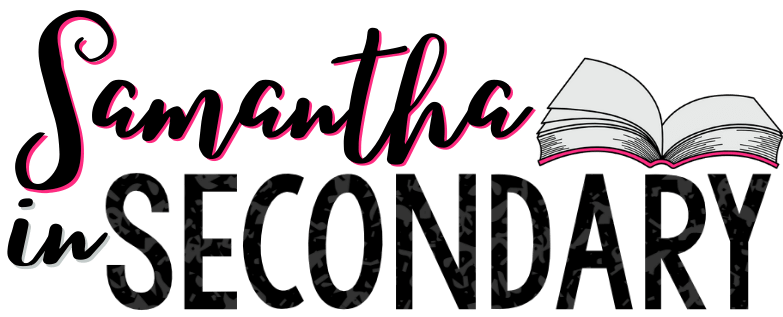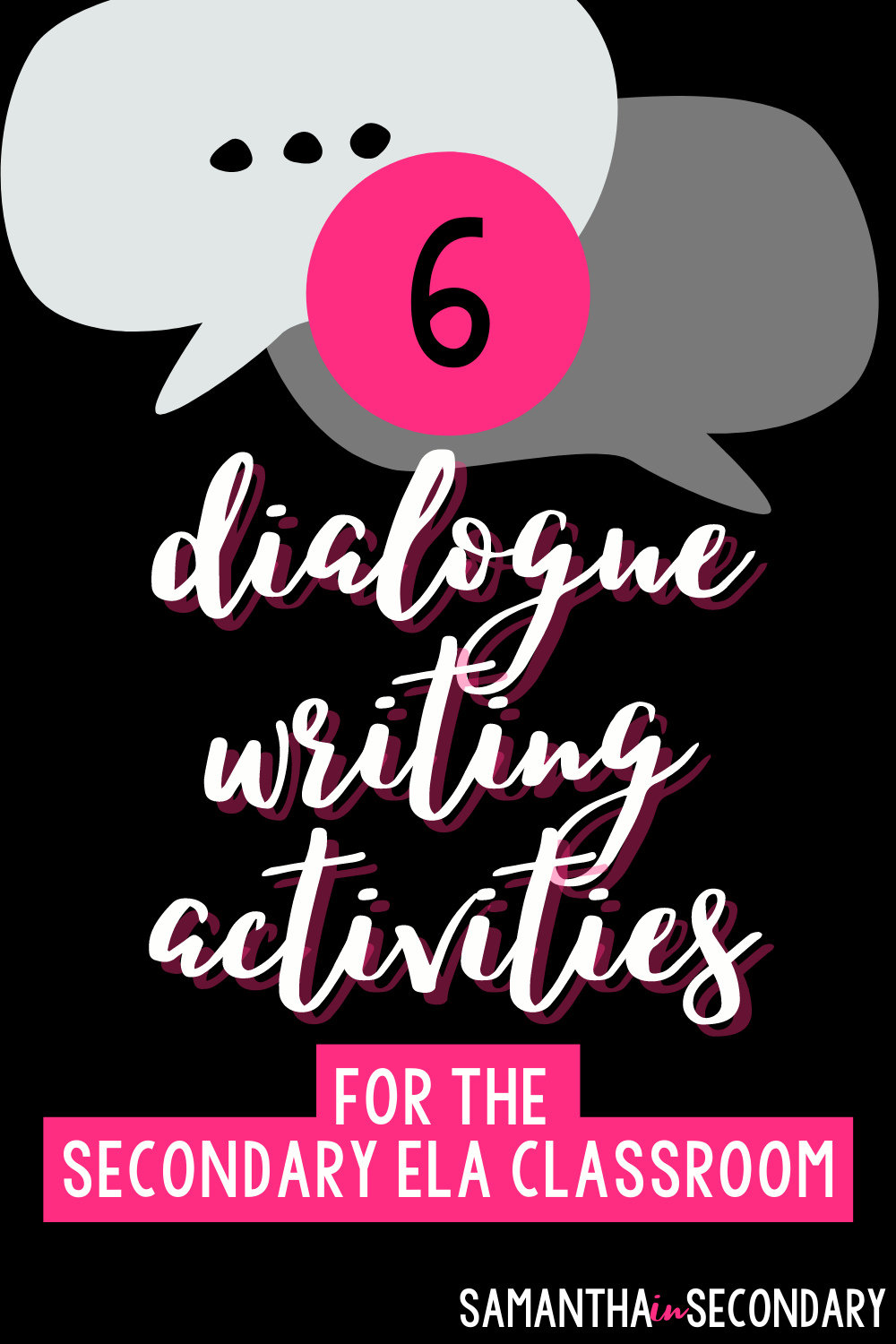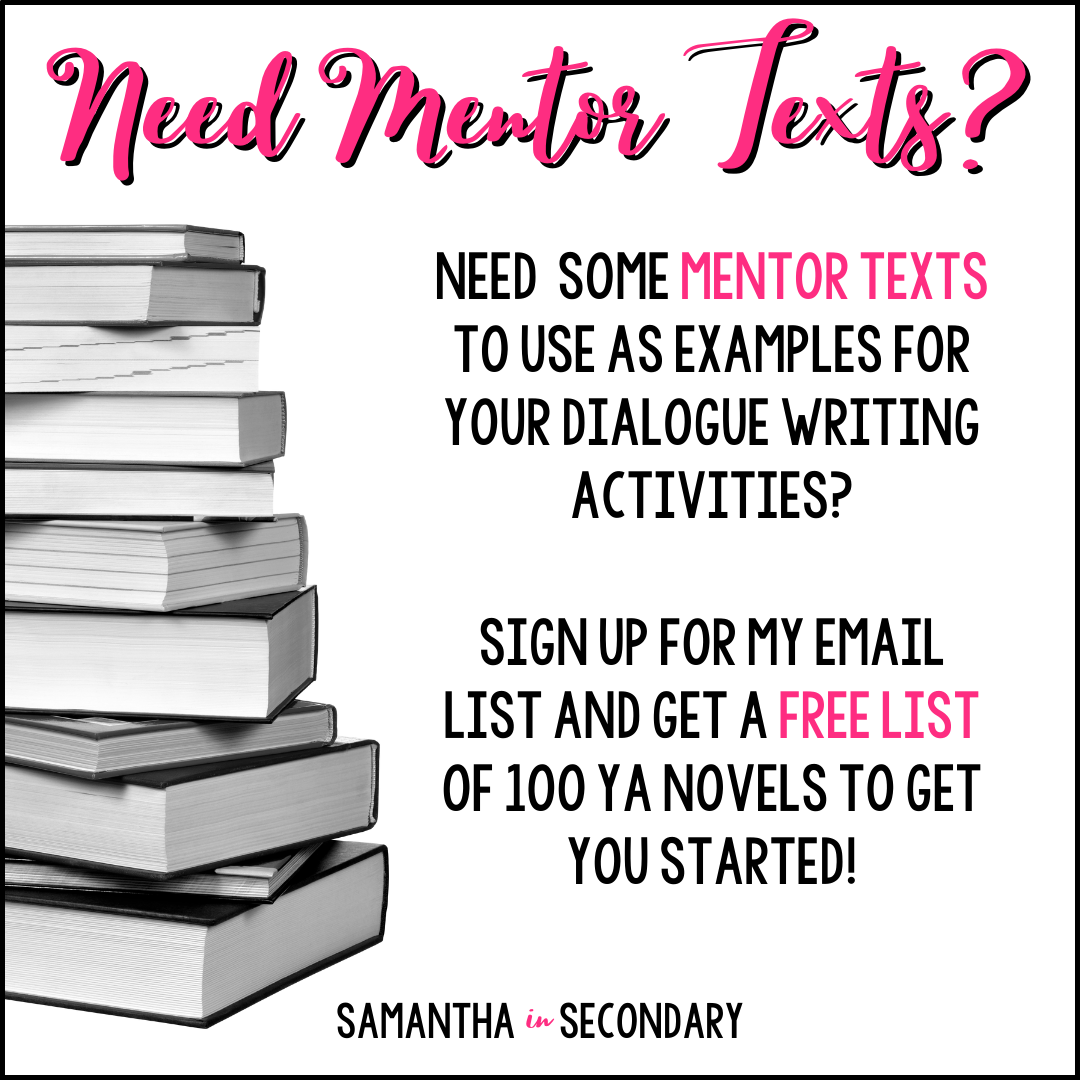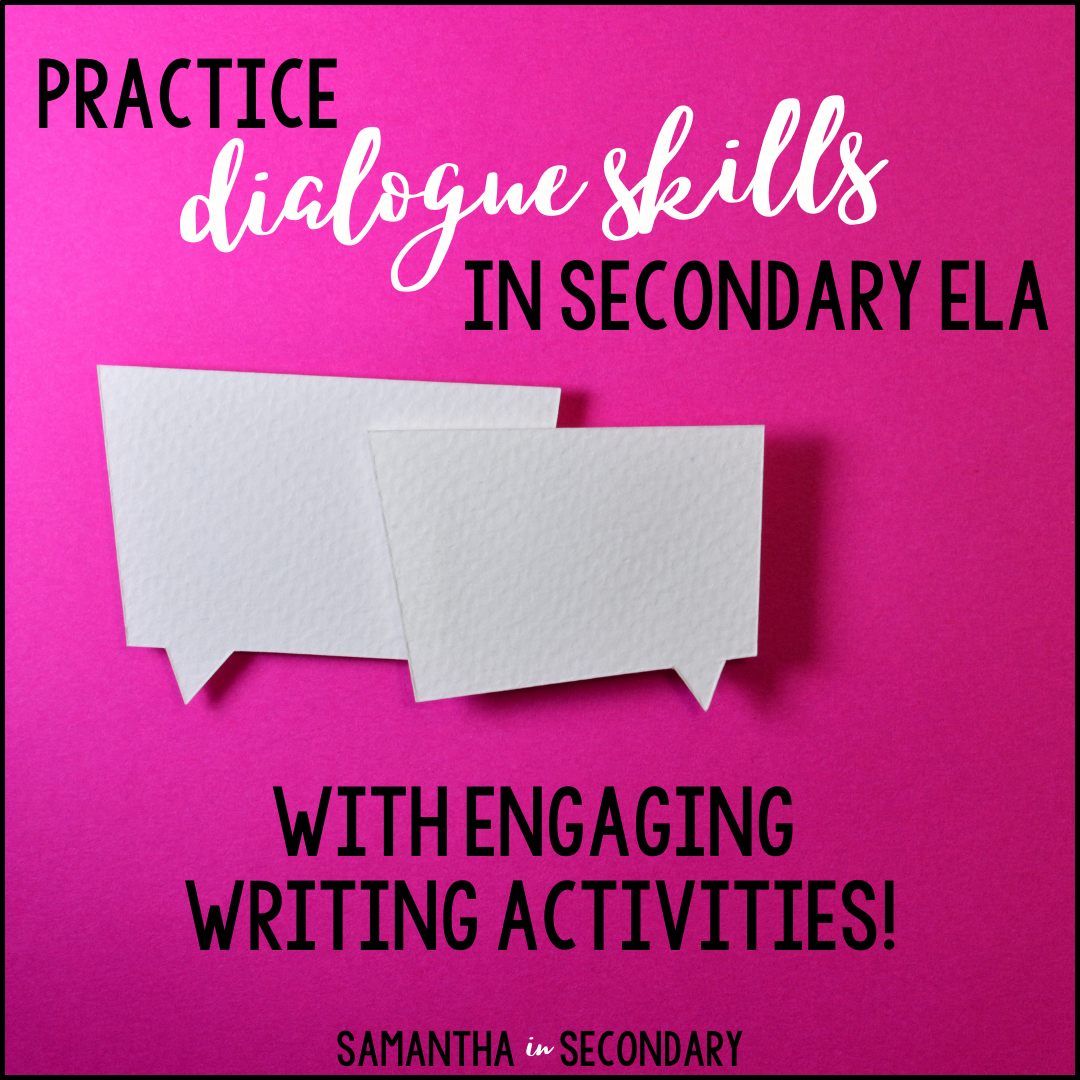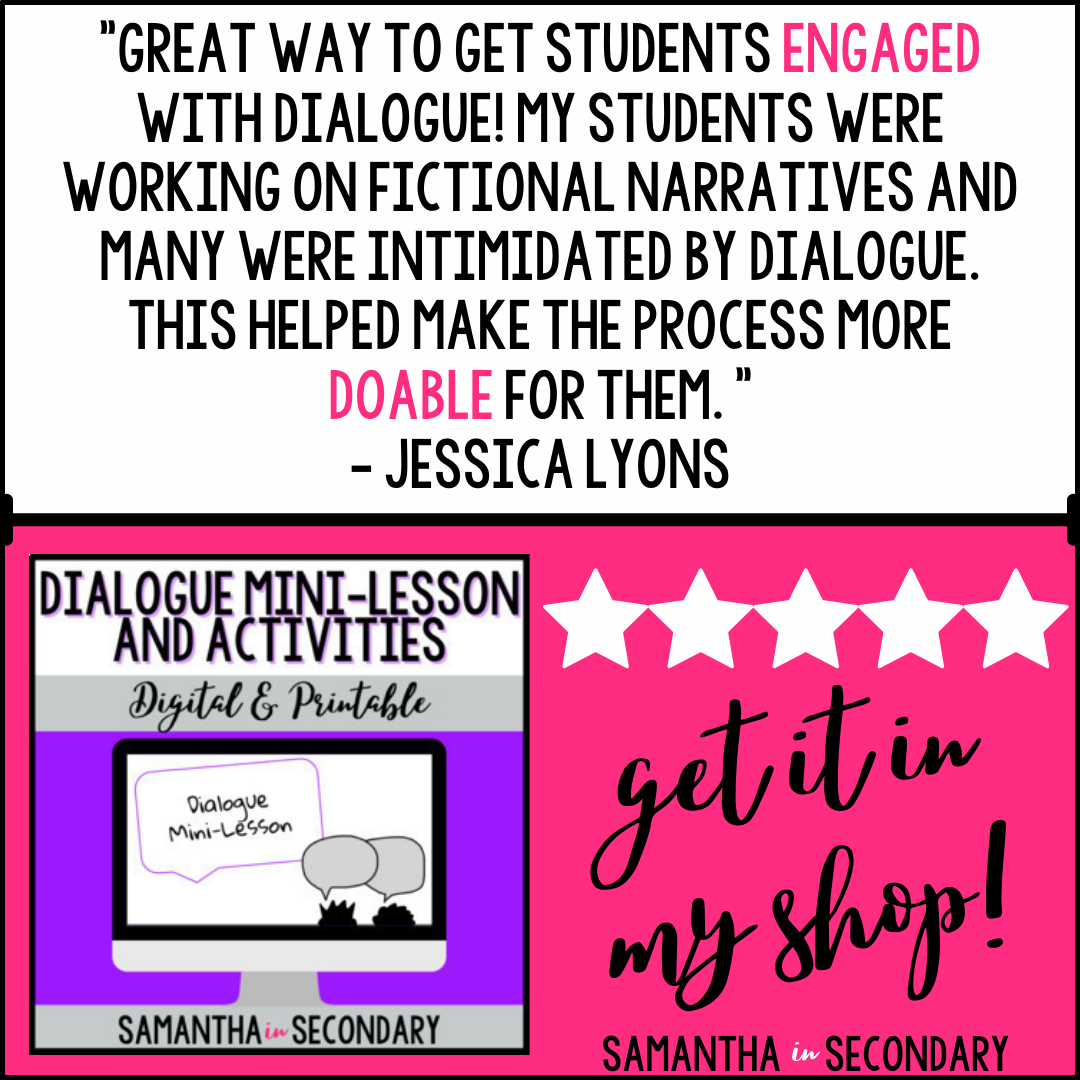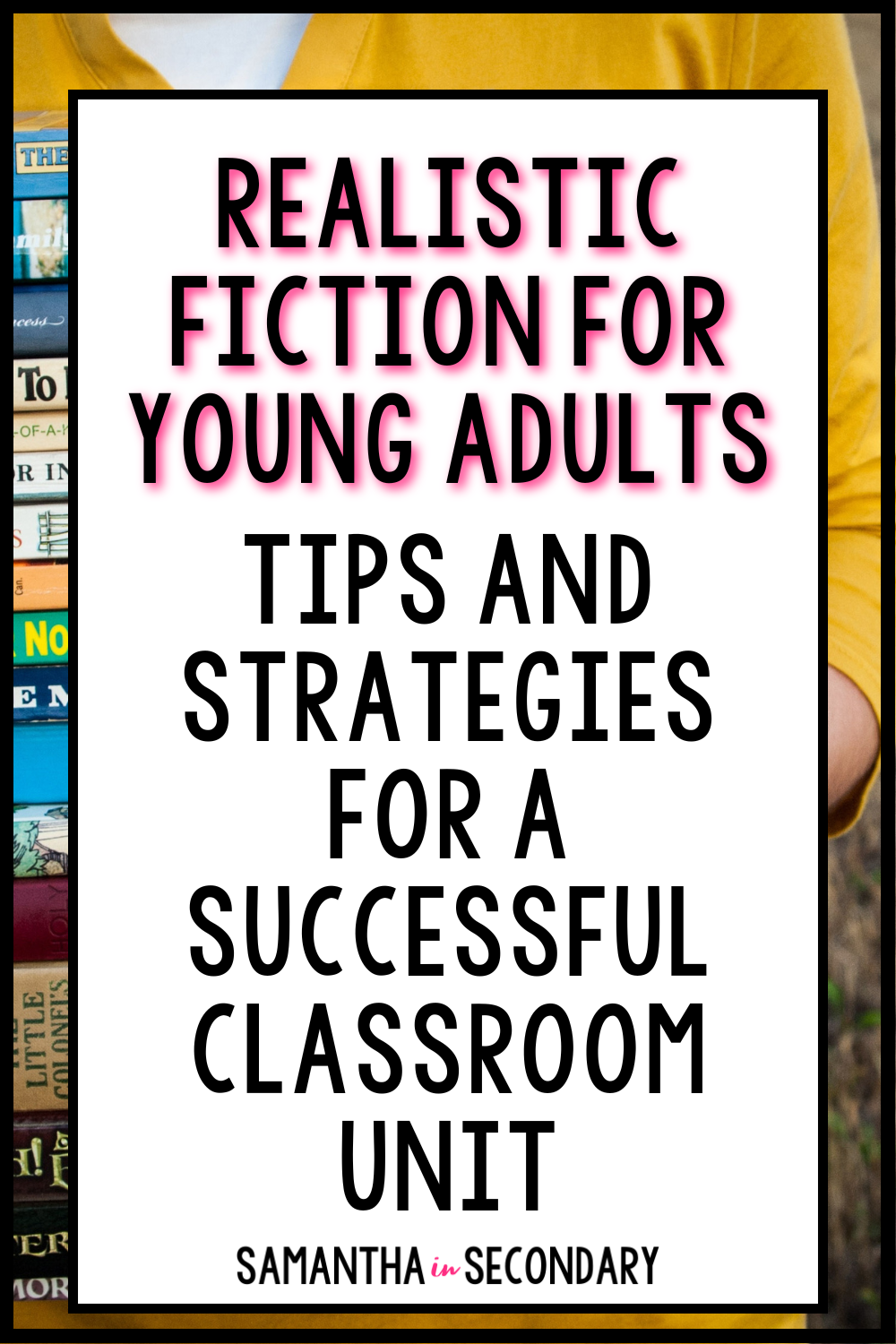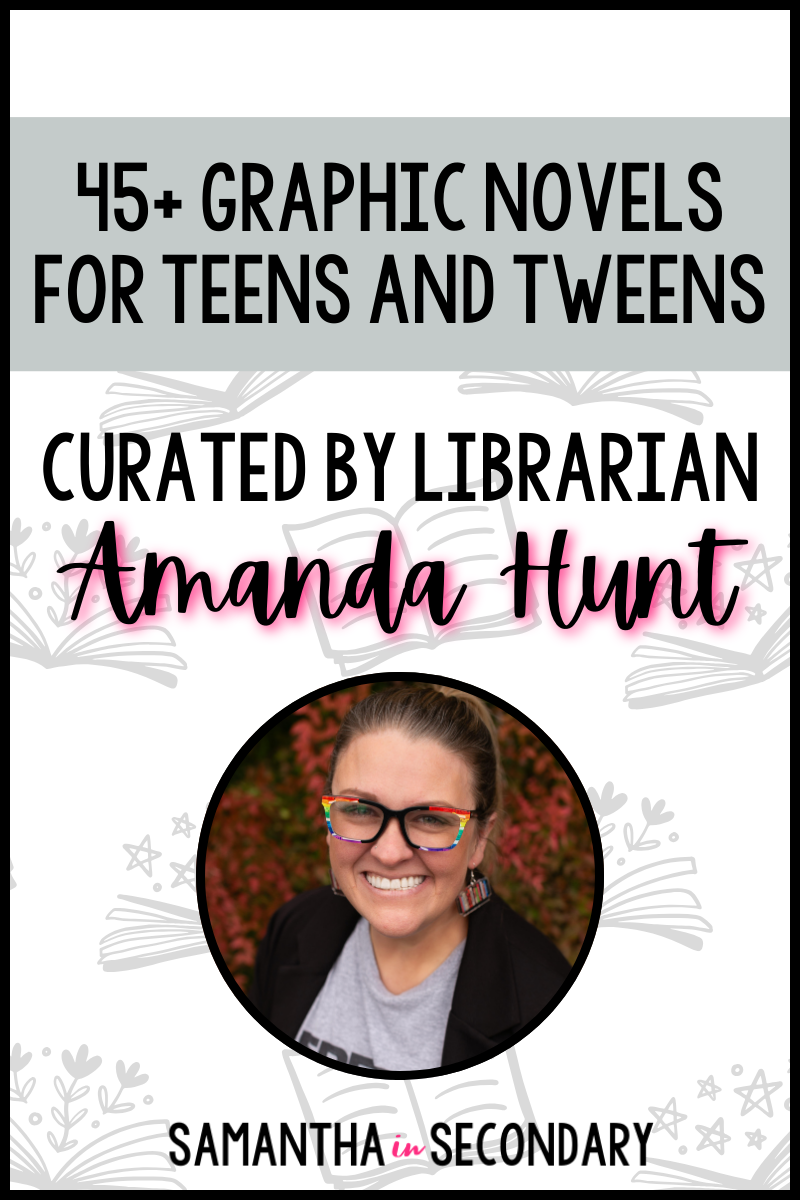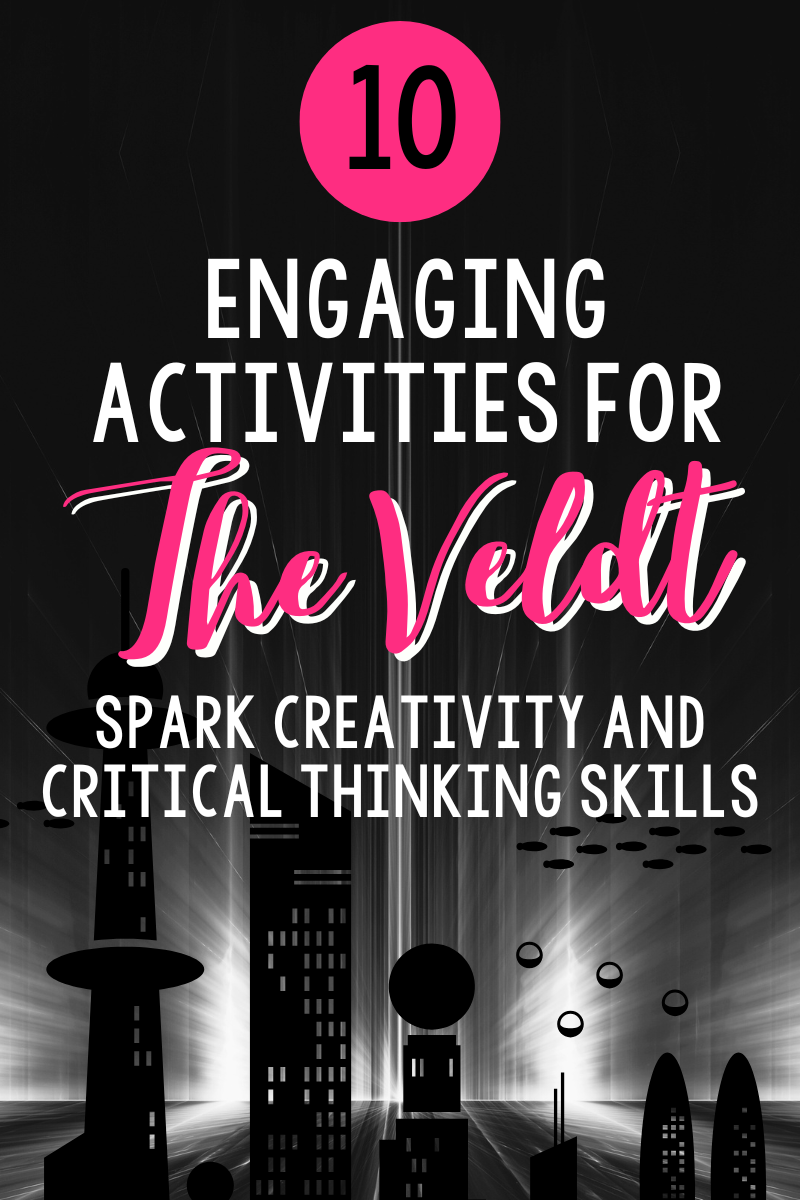Dialogue writing activities are always a mainstay in any of my narrative writing units. I love seeing the creative writing my students turn in, but I often see it lacks dialogue or uses it incorrectly. It’s a skill that needs to be refined, but is sometimes overlooked in the grand scheme of things. I like to set aside time for activities that help review the mechanics of proper dialogue writing, as well as unique dialogue writing activities that let students practice the skill themselves. Read on for creative dialogue writing activities for your secondary students.
1. Create a Scene
There are a lot of fun ways you can have students create scenes to practice writing dialogue. You can start with some premade options that you assign or students randomly select. You can also create Roll-a-Scene scenarios for your students (here’s my bundle of Roll a Story activities for inspo). In these activities, students use a dice and roll to receive story elements. In their story creation, have them create dialogue. This will allow your students to review the basic rules of dialogue and also let students practice creatively.
2. Write the Photo
Print a variety of photos for students to create the dialogue. You can go about this in a variety of ways. Print several options and use them as station activities or have everyone can write from the same photo as a bellringer. Find photos that have great facial expressions to help lead students who may struggle with writing, and use more ambiguous photos for more creative options where students must make inferences.
3. Use Mentor Texts
Pick from a lineup of strong mentor texts to use as examples. You can use from your current class readings, or select from top YA novels that your students already love. You can also have students select from their personal readings. Keep a variety of genres on hand so there’s always an example ready for students to use as a reference. You can use these for writing activities like having students continue a section, rewrite with different characters, update the language to something more contemporary or to fit in a new genre. If you need some ideas to add to your own classroom library, sign up for my email list to get a free list of 100 YA Novels to get you started.
[SPACE FOR OPT-IN]
4. Correct the Sample
Take either some mentor text examples or write your own for students to correct. This makes a great bellringer activity for quick reviews to keep it fresh in your students’ minds. Seeing how common mistakes can be corrected can help students visualize what needs done when they attempt their own writing. Consider working on some correction samples before students begin their own creative assignments. NoRedInk is another great option to allow students to practice correcting dialogue. Create a class, assign their pre-made dialogue writing activities, and you’re ready to go.
5. Turn Narrative into Dialogue
You can pull from mentor tasks again for this activity. Pull from your class reading, personal reading, popular novels, or just well-known scenes and have students write dialogue for sections of narrative. It can be an interesting take to see students write the same scene and compare their dialogue interpretations.
6. Learn from the Masters
If you’re looking for some more ideas there are a few more activity ideas here from Edutopia. The suggestions in the article are spot on and have great suggestions for dialogue activities to use with students.
If you’re looking for a great resource that combines many of the above activities already done for you, click here to grab the mini-lesson I use with my own students. The resource includes both print-and-go and digital versions, so you can use it however you may be teaching. My students love the creative dialogue writing activities included.
If you’re looking at your students’ writing and thinking it could use some more dialogue, or you know working with dialogue is a bit rusty – consider working in some daily practice or mini-lessons and activities to help solidify the skill.
Do you include dialogue writing activities in your own classroom? I’d love to hear about your favorites! Sound off in the comments below or follow me on IG or Facebook to join the discussion.
Happy teaching!



